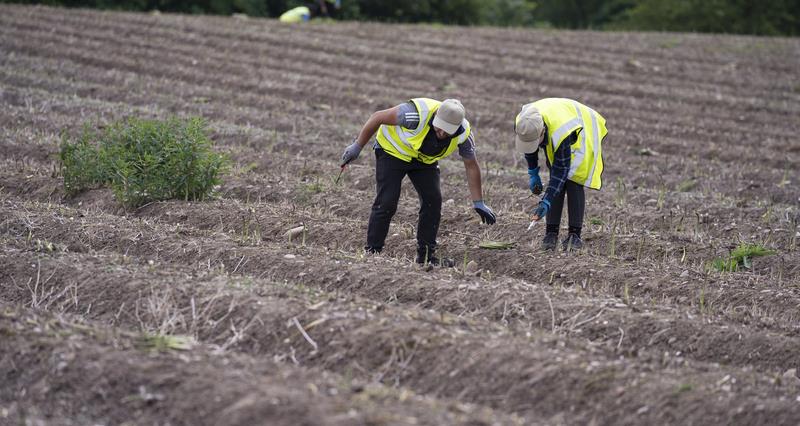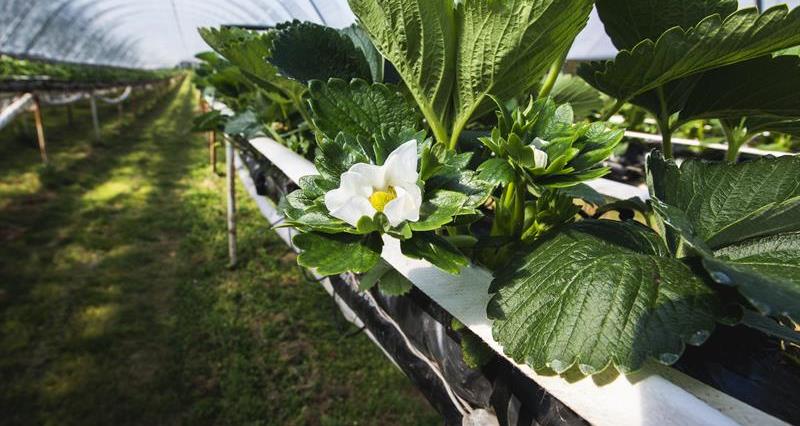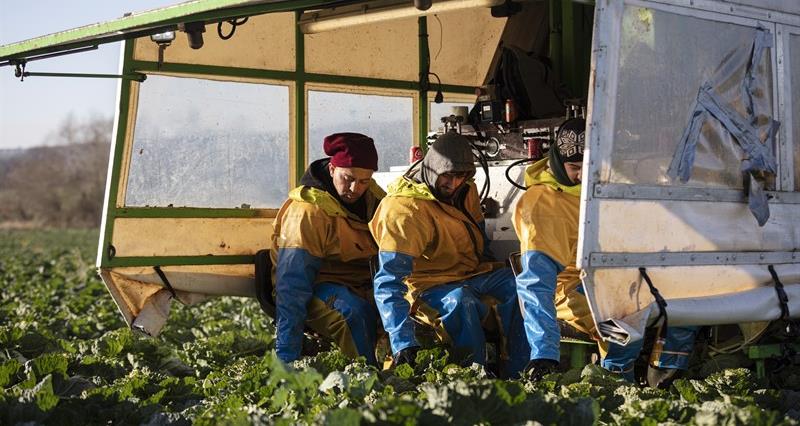The government has also committed to making 43,000 visas available for the horticulture sector in 2025, with another 2,000 visas for poultry. Details on the number of visas available for 2026-2029 will be published later this year, it has said.
The Seasonal Worker visa route had previously been extended until the end of 2024, under a two-year extension which the NFU lobbied for as part of a catalogue of evidence offered to the government.
The NFU has also consistently lobbied for an expansion to a number of visas allowed under the scheme each year which saw an increase to 45,000 for horticulture and 2000 visas released during 2023.
The announcement was made as part of a package of measures in response to the Shropshire Independent Review into Labour Shortages published in June last year. The independent review panel put forward a number of recommendations including NFU asks to deliver a long-term scheme and ensure visa numbers remain sufficient to meet this industry’s needs.
More recently, a House of Lords report recommended the government produces a workforce strategy to address seasonal labour uncertainties following an 11-month investigation into the UK horticulture sector.
Access to labour is one of the key priorities for the NFU's national poultry board and is also one of ten key building blocks identified by the NFU as necessary to deliver long-term growth for the industry under our newly updated growth strategy for horticulture.
Commitment is ‘very positive’
NFU President Tom Bradshaw said the news “will be a huge relief for the horticulture and poultry sectors that rely on seasonal workers and is a brilliant win for the NFU, which has been campaigning for a long-term plan for seasonal workers for some time”.
Access to a skilled and motivated workforce has been a major concern for many UK farmers and growers and has led to significant challenges for the horticulture and poultry sectors.
“We have seen in the past how damaging shortages of workers have been,” Tom said, referencing the NFU’s own survey work, which found that 41% of respondents reduced the amount of food they produced due to being unable to recruit the essential workforce needed, with approximately £60 million worth of crops lost during 2022 due to labour shortages.
“We know that with the correct trading conditions there are significant opportunities for growth and the commitment to a five-year scheme is very positive.”
NFU President Tom Bradshaw
“We know that with the correct trading conditions there are significant opportunities for growth and the commitment to a five-year scheme is very positive,” Tom added.
“Moving forward, it is vital to have assurance that the number of visas and the costs associated with accessing them will continue to meet the needs of our food producers.”
The cost and additional requirements needed for workers to have Seasonal Worker Scheme visas make it an unaffordable option for some poultry producers, particularly small to medium sized seasonal businesses.
Automation funding welcome
The NFU has also welcomed news of up to £50 million of further funding for new technology to support fully automated packhouses, with more support to follow to bring robotic crop pickers on a par with human pickers in three to five years.
The NFU’s survey work found that just under a quarter of respondents said that they were increasing automation on farm to minimise the impact of labour shortages on their business, but that automation still has a long way to go before it can replace labour completely.
The government also committed to a ‘comprehensive strategy to enhance skills provision and attract domestic workers’.
Professional body TIAH was officially opened for membership earlier this year, with the ambition to position agriculture and horticulture as a dynamic industry, attracting and retaining talent from a wide range of backgrounds, investing in people in order to improve productivity, staff engagement and retention.
It provides a valuable online space, giving users access individual profiles, logging both formal and informal training and qualifications.
Announcing the new measures, Defra Secretary Steve Barclay said: “Businesses do best when they can plan effectively for the future, which is why we’ve extended the seasonal worker visa route until 2029 to give farmers and growers the certainty they need to thrive.”
Looking forward to the government’s Farm to Fork Summit next week, Tom Bradshaw said it is “important that these positive announcements are reinforced by the government” and that “the industry and government can work together to drive growth for UK food and farming”.
NFU lobbying – seasonal workers
NFU secures five-year extension to Seasonal Worker Scheme
The news follows years of NFU lobbying for a long-term plan for seasonal workers and was announced as part of a package of measures including a commitment to a further 45,000 visas for 2025.
NFU secures visa ‘reset’
The relaxation to the Seasonal Worker Scheme means that workers can return an extra month earlier in 2023.
NFU successfully lobbies for the removal of the SWS wage
NFU secures scheme expansion to 45,000-55,000 visas
Extra 10,000 visas released
After the NFU submitted detailed evidence to Defra, demonstrating the level of demand from the industry, an extra 10,000 visas were released to bring the scheme total to 40,000.
Seasonal Worker Wages
The Home Office provided new guidance on the wage requirements for seasonal workers recruited under the Seasonal Worker Scheme, in response to our calls for urgently needed clarity.
NFU President Minette Batters pressed Defra Secretary of State George Eustice for clarity on this issue at NFU Conference in February: NFU22: George Eustice on the future of British farming.
At £10.10, horticulture businesses would be facing wage inflation of 13% against the current National Living Wage (NLW), and still 7% above the new NLW rate which comes into effect in April.
The NFU wrote to all the major UK retailers to set out members’ concerns and to highlight the impacts this new wage policy will have.
NFU secures a 3 year extension to the scheme
The Home Office announced the Seasonal Worker visa route has been extended until the end of 2024, to allow foreign workers to come to the UK for up to six months to pick edible and, for the first time, ornamental crops.
The extension of the scheme has been a key NFU lobbying ask as part of work that has seen a catalogue of evidence offered to the government.
The scheme also includes an expansion of 40k visas.
NFU works with the DWP to mitigate impact of COVID
With seasonal worker recruitment impacted by COVID restrictions and the introduction of a points based immigration system in January 2021, the NFU and the Department for Work and Pensions (DWP) worked together to identify measures to support UK growers in attracting and retaining domestic workers.
NFU secures another increase to the scheme to 30,000 visas
NFU works with Defra to launch the Pick for Britain campaign
The campaign encouraged domestic workers into seasonal roles.
NFU launches Horticulture Seasonal Worker survey
The survey was completed by 244 horticultural growers, recruiting over 30,000 people. This equates to just under 50% of the workforce.
NFU Deputy President Tom Bradshaw said: "While there was a fantastic response from Brits to the call for domestic workers this year in extraordinary circumstances, we see from the survey results that they only made up 11% of the workforce. Seasonal work on farm simply isn’t a viable solution for many."
NFU secures another increase to the pilot to 10,000 visas
NFU successfully secures an increase to the pilot to 5000 visas
NFU successfully secures a Seasonal Worker Pilot
Horticulture remains the only sector in the entire UK economy to have a ‘low skilled’ immigration route.



